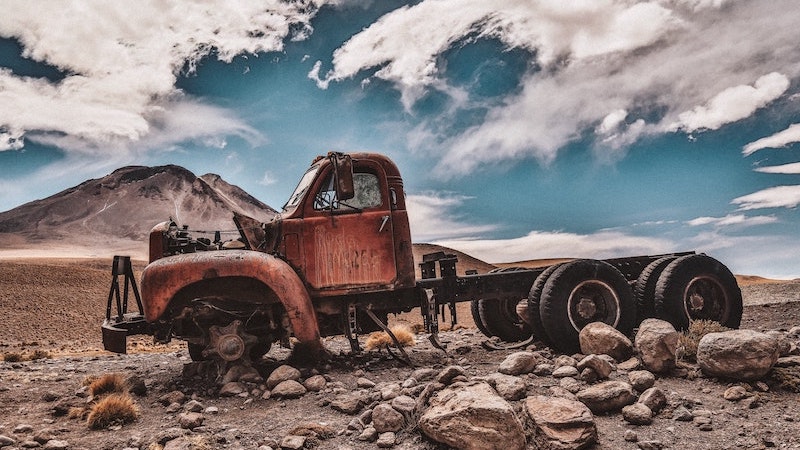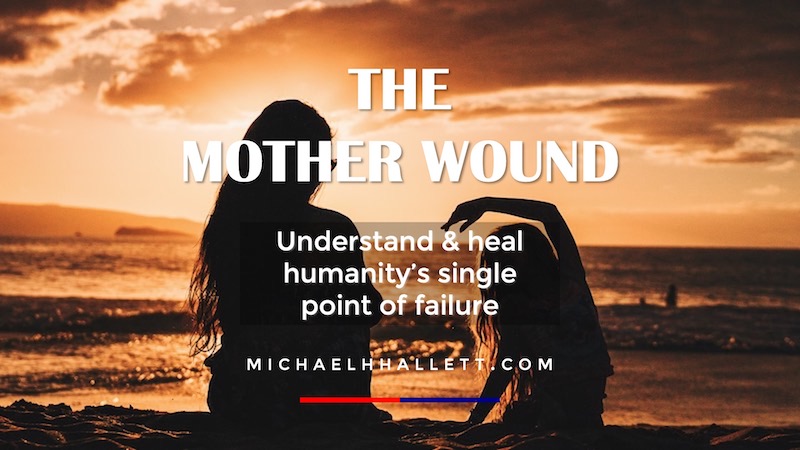The mother wound creates a cycle of abandonment
- 17 November 2022
- Posted by: Michael H Hallett
- Category: Mother wound ,

Just as there is a life cycle, an ascending cycle that nurtures, develops, and raises us to new heights, there is a contra-rotating cycle. A downward, descending, dead-end cycle: the cycle of abandonment.
It’s why we litter the planet’s oceans with fishing tackle, its deserts with rusty cars, its city streets with the detritus of abandonment—fast food wrappers, beer bottles, whatever.
The cycle of abandonment
We tend to think of abandonment as a one-off, an event. A child suffering the sudden death of a parent. A father walking out on their family. A child orphaned at birth.
A short, sharp, blow… then a long spell of pain, grief, and loss until—hopefully—“this too shall pass.” Which, of course, it doesn’t. It just gets numb.
The Wikipedia definition supports this singular, event-driven view:
Emotional abandonment is a subjective emotional state in which people feel undesired, left behind, insecure, or discarded. People experiencing emotional abandonment may feel at a loss, cut off from a crucial source of sustenance that has been withdrawn, either suddenly, or through a process of erosion.
In a classic abandonment scenario… the object of one’s attachment is the one who chose to break the connection.
Abandonment begets abandonment
These singular events are part of an on-going cycle of ‘abandonment events’ that includes much more than the obvious ruptures of sudden, undesired loss.
This is because abandonment begets abandonment.
The cycle of abandonment begins at birth with a lack of genuine emotional nourishment—what I have termed the mother wound, humanity’s single point of failure.
The mother wound stems from a failure of the mother-child development process, the first and most important such process in our lives. Other, later, development processes—such as the father-child process—can only develop to the extent this initial process unfolded.
The mother-child process governs such critical faculties as nurturing, connection, communication, community, and responsibility. It’s how we learn to look after ourselves, our families, our possessions, our creations, our planet.
We have all received physical nurturing from our mothers—whether actual or surrogate. Otherwise, we wouldn’t be here. Yet most of us received little to no emotional nurturing from our mothers.
Evidence? Look at the state of so many people, so many communities, of the planet. A species that had even a moderate capacity to nurture would create a better world than ours.
The Patriarchal Operating System
Abandonment spreads through our lives as an inability to nurture self, family, community, creations, and planet. A downward cycle that spirals away from the first, critical, abandonment in our lives—the mother wound. It ends with an inability to dispose responsibly of all that is outworn—beliefs, relationships, friendships, possessions.
Hence the abandoned car in this photo from Christopher Burns. Abandoned buildings in city centres—it’s cheaper to raze the environment than to redevelop. Irresponsible. Abandoned litter pretty much everywhere. Irresponsible. Microplastics in the ocean. Irresponsible. A cycle of abandonment and irresponsibility radiating outwards, like ice cracking beneath our feet, from the mother wound.
Patriarchy institutionalises abandonment in all its forms because it’s an intrinsic part of the psychological structure of patriarchal societies—the Patriarchal Operating System.
To reverse the abandonment cycle we must strip away the traumas overlaying the mother wound and return the world to genuine, responsible emotional nurturing. There are many brave people working on that. But it’s a long road, and rusted hulks litter the way.
ONLINE COURSE

Photo by Christopher Burns on Unsplash
